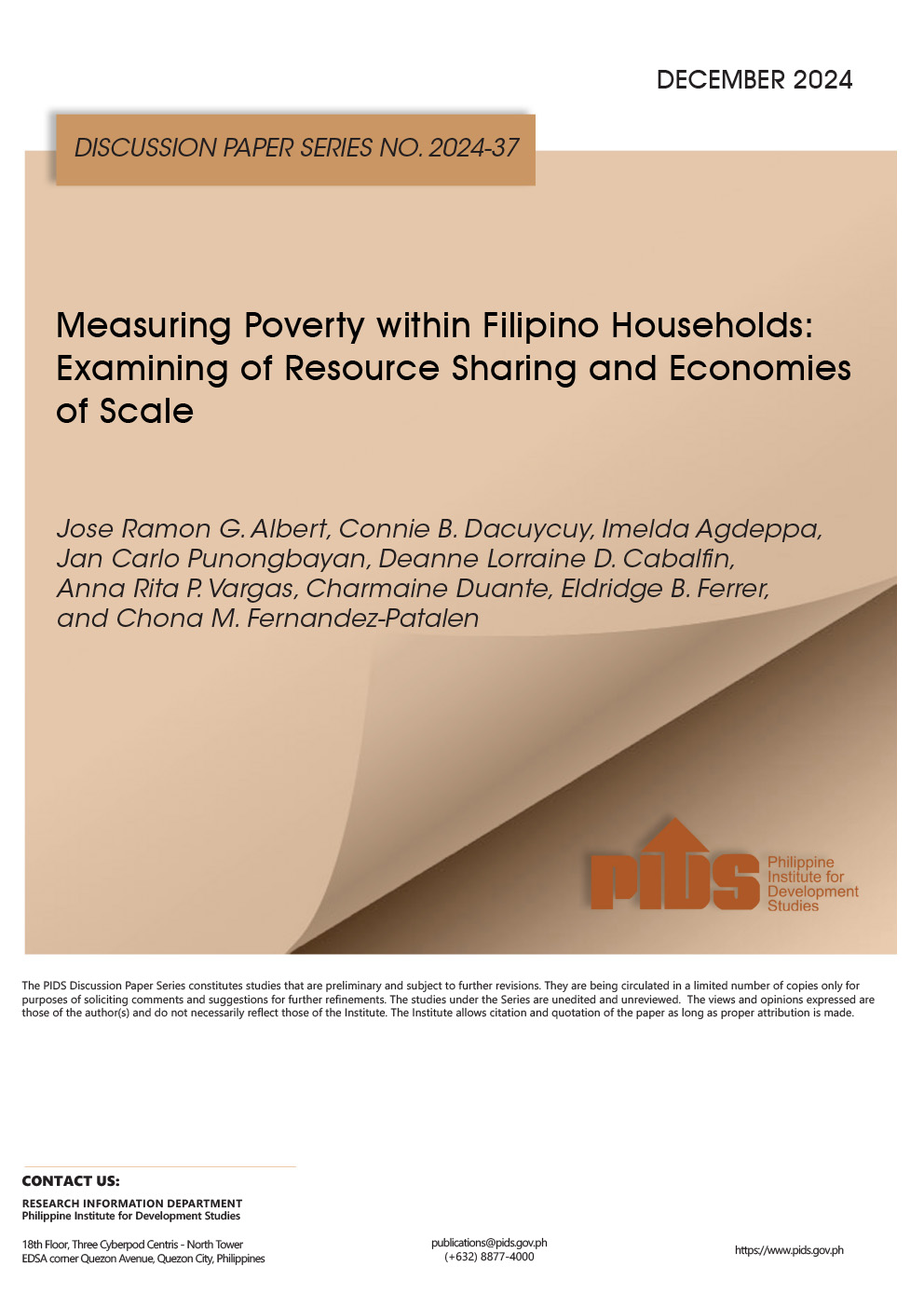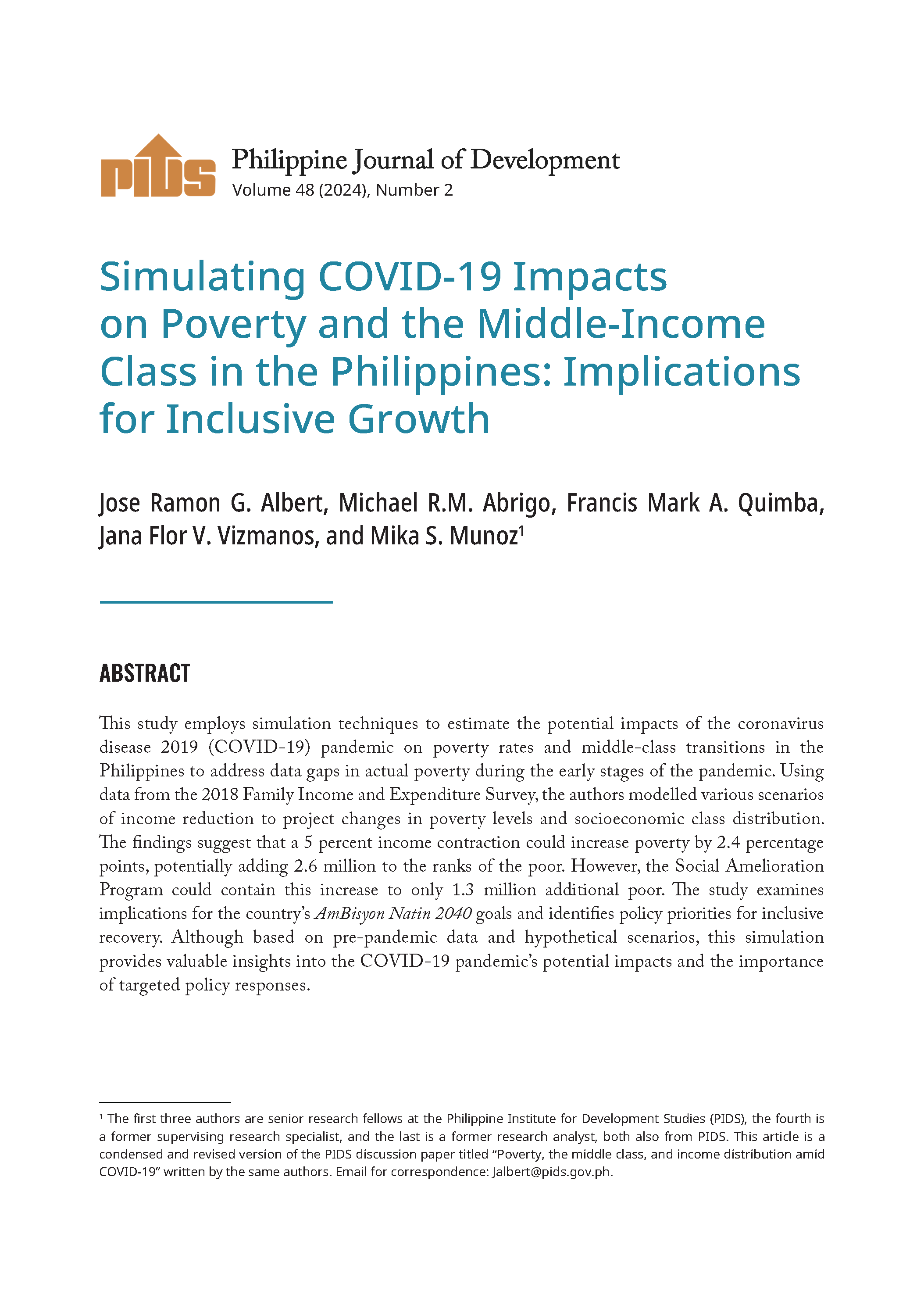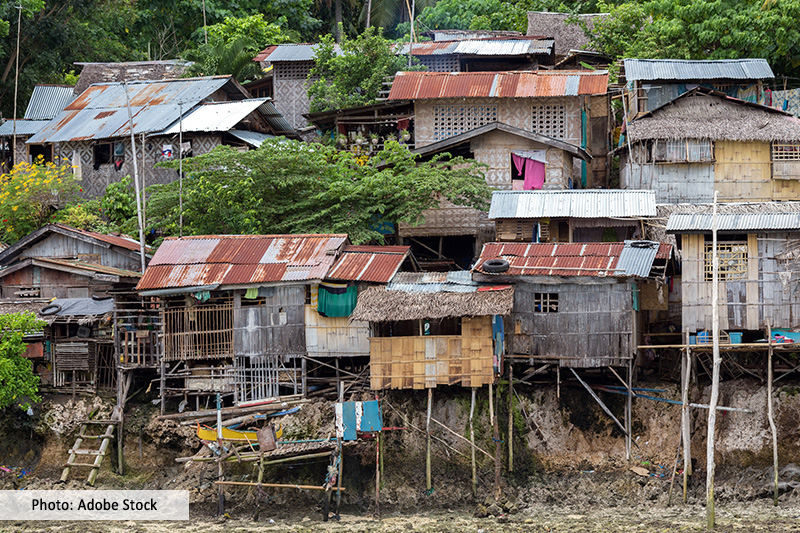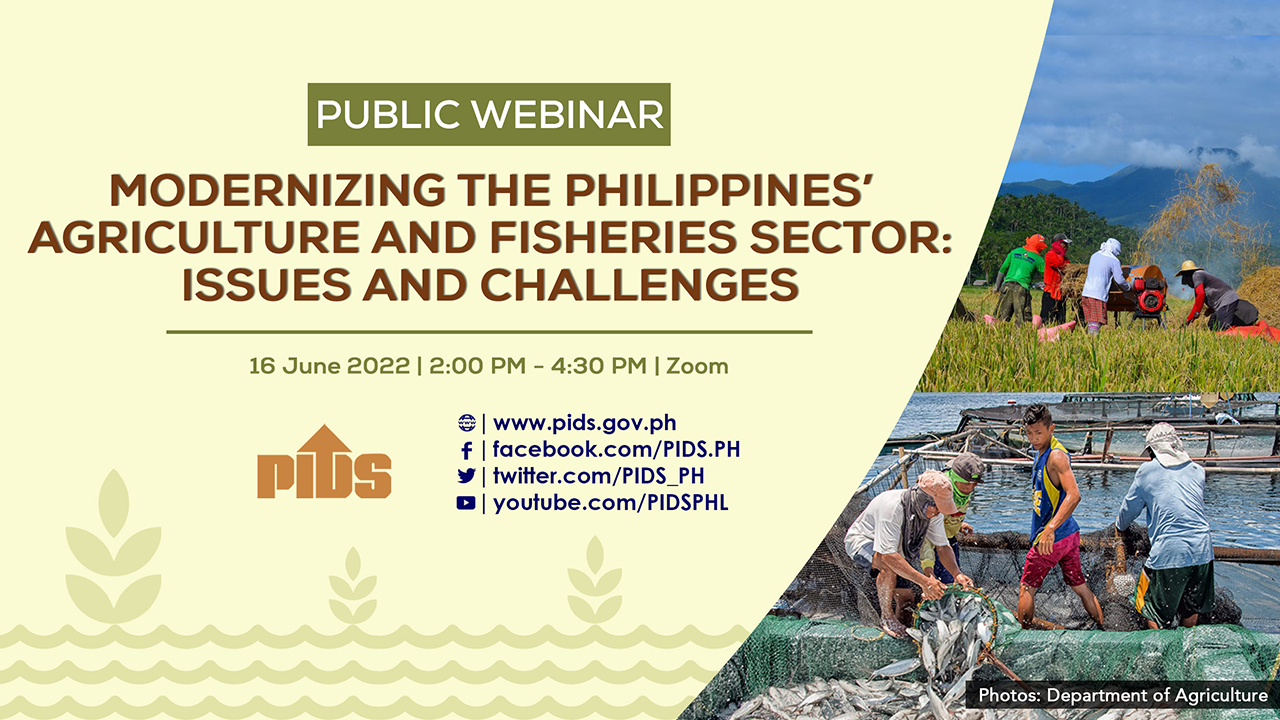An increase in world prices of agricultural commodities has nuanced impacts: good for the nation's economy but bad for the poor.
Professor German Calfat, an expert on the relationship and nature of trade and national development at the University of Antwerp, shared this conclusion during a seminar-forum organized by state think tank Philippine Institute for Development Studies.
His presentation was based on the findings of his research on Poverty impacts of changes in the price of agricultural commodities: recent evidence for Argentina (an ex-ante analysis).
The study found that, in the experience of Argentina, an increase in world prices of agricultural commodities have positive macro effects on the Argentinian economy. However, the poorest and most vulnerable sector of society were negatively affected. The changes in labor income positively affected only the middle class, in that labor income increased. But the positive changes weren’t enough to compensate the overall increase in commodity prices.
Professor Calfat recommended that, as a countermeasure, Argentina and any country facing a similar situation should enforce complementary actions to address the distributional impact, especially on the poor, of raising international commodity prices.
The models used in Professor Calfat`s study relied on data from individual households. They demonstrated the relationship between wages, the increase in international prices, and the respondents` highest educational level. The study, however, did not include non-labor income in its models.
Professor Calfat`s conclusions raise questions on the notion that trade liberalization is good for all. The study shows that is not always the case.
Professor Calfat encouraged more studies to be done on the matter. Government measures that anticipate price changes and the interacting nature of their impacts must be enforced to protect those most vulnerable to the negative effects.
Philippine researchers and policymakers can replicate the models used and undertake their own study to gauge the distributional impact of trade liberalization and its relationship to poverty.
One relevant area worth looking into is the rice sector and the effects of the World Trade Organization’s (WTO) extension of the high duties on imported rice.
The WTO Council for Trade in Goods approved the Philippines` waiver request for a special treatment on rice until 2017. The country sought the extension to give farmers time to enhance their production capability and adjust to the increasing competing with other rice-producing countries in the region.
Professor German Calfat, an expert on the relationship and nature of trade and national development at the University of Antwerp, shared this conclusion during a seminar-forum organized by state think tank Philippine Institute for Development Studies.
His presentation was based on the findings of his research on Poverty impacts of changes in the price of agricultural commodities: recent evidence for Argentina (an ex-ante analysis).
The study found that, in the experience of Argentina, an increase in world prices of agricultural commodities have positive macro effects on the Argentinian economy. However, the poorest and most vulnerable sector of society were negatively affected. The changes in labor income positively affected only the middle class, in that labor income increased. But the positive changes weren’t enough to compensate the overall increase in commodity prices.
Professor Calfat recommended that, as a countermeasure, Argentina and any country facing a similar situation should enforce complementary actions to address the distributional impact, especially on the poor, of raising international commodity prices.
The models used in Professor Calfat`s study relied on data from individual households. They demonstrated the relationship between wages, the increase in international prices, and the respondents` highest educational level. The study, however, did not include non-labor income in its models.
Professor Calfat`s conclusions raise questions on the notion that trade liberalization is good for all. The study shows that is not always the case.
Professor Calfat encouraged more studies to be done on the matter. Government measures that anticipate price changes and the interacting nature of their impacts must be enforced to protect those most vulnerable to the negative effects.
Philippine researchers and policymakers can replicate the models used and undertake their own study to gauge the distributional impact of trade liberalization and its relationship to poverty.
One relevant area worth looking into is the rice sector and the effects of the World Trade Organization’s (WTO) extension of the high duties on imported rice.
The WTO Council for Trade in Goods approved the Philippines` waiver request for a special treatment on rice until 2017. The country sought the extension to give farmers time to enhance their production capability and adjust to the increasing competing with other rice-producing countries in the region.












